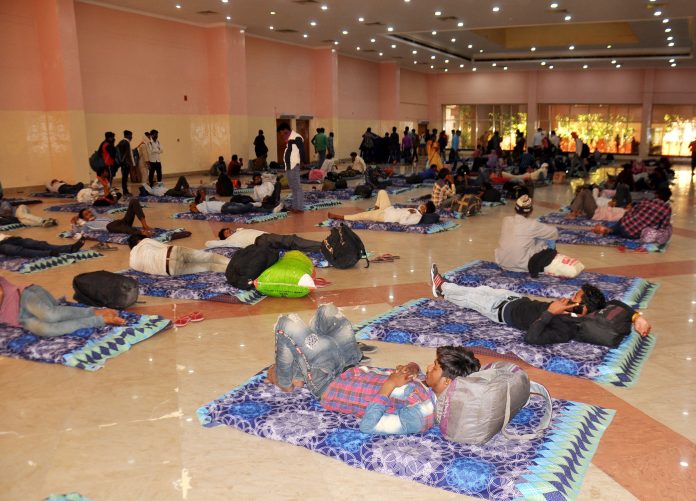
Fver since the world went into lockdown, the entire concept of freedoms has changed drastically. We are scared to step out of our homes lest the police question us, we worry about bringing in the groceries or whether we will be able to buy any toothpaste. What about human rights?
A little known Act, the Epidemic Diseases Act, is now in force. As per this, the centre has sweeping powers. When, for instance, it is satisfied that India or any part thereof is visited by, or threatened with, an outbreak of any dangerous epidemic disease and that the ordinary provisions of the law for the time being in force are insufficient to prevent its outbreak or spread, the centre can take measures and prescribe regulations for the inspection of any ship or vessel or of any person intending to sail, it says.
The penalties too are strict. Any person disobeying any regulation or order under this Act shall be deemed to have committed an offence punishable under Section 188, IPC. The authorities have wide protection so no legal proceeding shall lie against any person for anything done or in good faith intended to be done under the Act. The measures referred to include the inspection of persons travelling by railway or otherwise, and the segregation, in hospital, temporary accommodation or otherwise, of those suspected by the inspecting officer of being infected with any such disease.
There are international regulations too such as International Health Regulations (2005) which govern how 196 countries and the WHO collectively address the spread of disease and avoid unnecessary interference with international traffic and trade.
Terms are bandied about today that just a few months ago were little known contact tracing, social isolation and quarantine. These methods invariably impinge on the autonomy, liberty and dignity of individuals. We allow these intrusions for the State to be able to act in the interest of the population at large. The laws, however, are silent on how citizens are to be treated during this crisis.
A quick look at some worrying occurrences presents a picture that we in the legal fraternity should keep an eye out for. The UN in various articles has articulated these concerns. The disease seems to have scared people and resulted in abuses and stigma. Stark disparities have also come into focus between those who are fortunate to have a roof over their heads and migrants who are starving or on their long walk back home.
This can be seen in countries abroad too. In the UK, there was news of an Uber driver who was barred from entering his rented accommodation and eventually dying. Hungary is barring trans people from having any rights. Laws are being passed whilst the focus is elsewhere. In Brazil, the federal police chief and the health minister who supported isolation as a tool to contain the spread of the virus were fired.
If this is truly a shift in the way we will exist in future with strict safeguards on hygiene, sanitation, social distancing and so on then should we accept that we also need to modify our freedoms? Human rights may end up changing piecemeal. For now, we need to be vigilant and courts around the globe should ensure that there is no overstepping of authority. UN Secretary General Antonio Guterres was right when he said that the pandemic is “a human crisis that is fast becoming a human rights crisis”.
The writer is Barrister at Law, Honourable Society of Lincoln’s Inn, UK, and a leading advocate in Chennai. With inputs from Praveen PK and Tarun N
Lead Picture: By UNI

